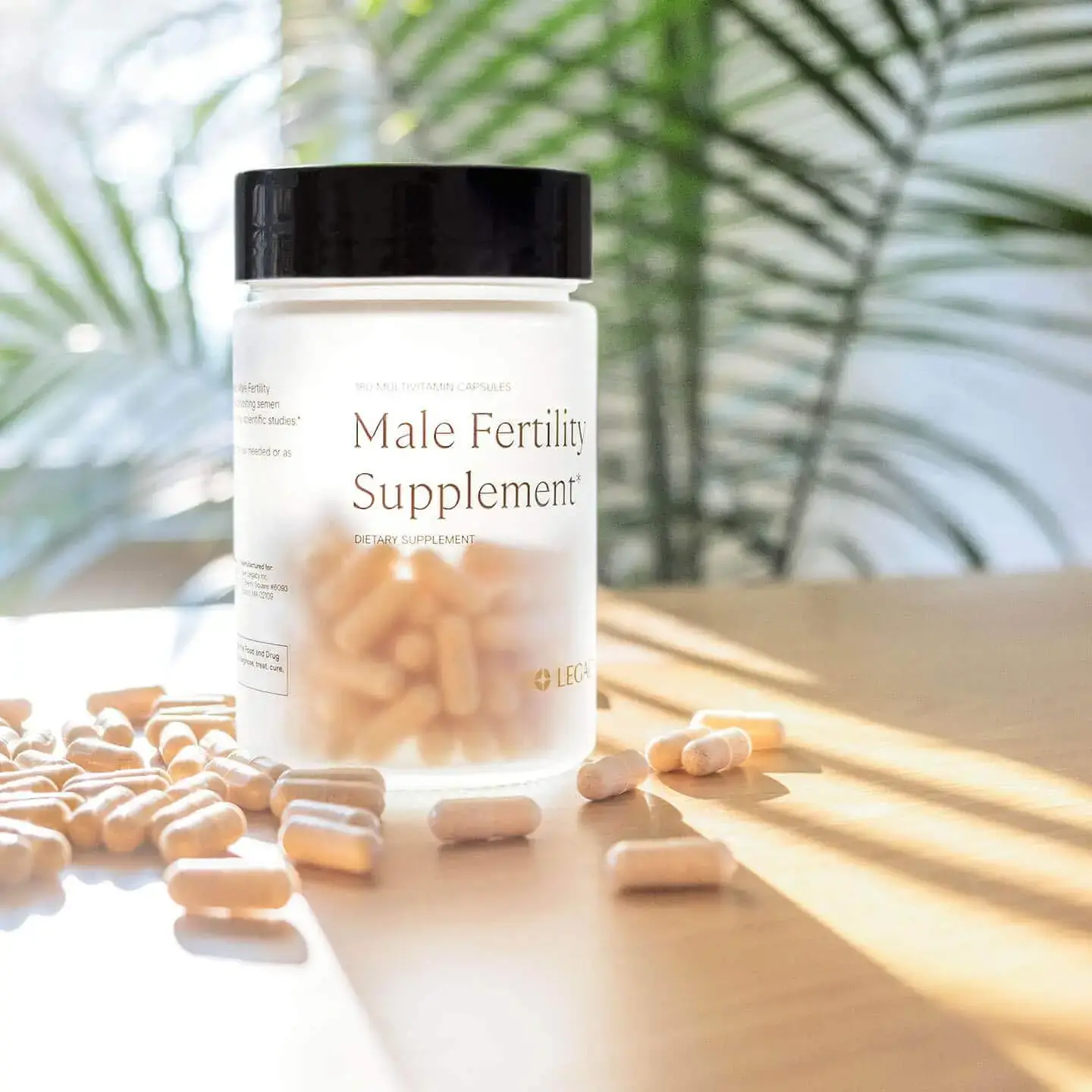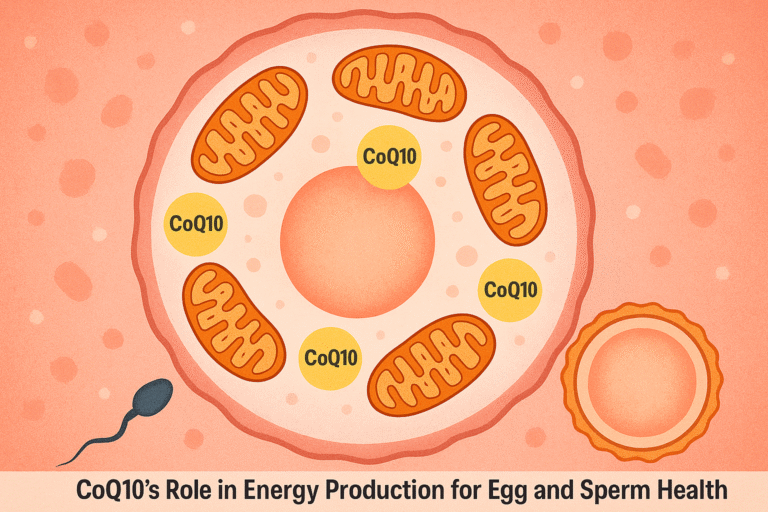Male fertility is a topic often overshadowed by the emphasis on female reproductive health. However, the reality is that nearly half of all infertility cases involve male factors. One of the most critical components of male fertility is sperm quality, which can be influenced by various factors, including diet, lifestyle, and nutrient intake. With the rise in health supplements, male multivitamins are gaining popularity for their claimed ability to improve sperm quality. But how effective are they really?
In this article, we dive deep into the relationship between male multivitamins and sperm health, separating fact from fiction.
Also read: Boost Your Sperm with 10 Daily Habits.
What Are Male Multivitamins?
Male multivitamins are dietary supplements formulated specifically for men, often with a focus on boosting energy, immunity, and reproductive health. Unlike general multivitamins, male fertility supplements typically contain higher concentrations of key micronutrients that play essential roles in testosterone production, sperm development, and oxidative stress reduction.
Common nutrients in male fertility supplements include:
- Zinc
- Selenium
- Vitamin C and E
- Folate (Vitamin B9)
- Vitamin D
- Coenzyme Q10 (CoQ10)
- L-Carnitine
These nutrients are often combined in capsule or tablet form to provide a convenient, all-in-one solution for men seeking to enhance their reproductive health.
Understanding Sperm Quality
When assessing male fertility, several factors come into play:
- Sperm Count: The number of sperm in a given sample.
- Motility: The sperm’s ability to swim effectively.
- Morphology: The shape and structure of sperm.
- Volume and Semen Health: The overall quality and quantity of seminal fluid.
Sperm quality can be negatively affected by:
- Poor nutrition
- Obesity
- Smoking and alcohol
- Environmental toxins
- Stress
- Age-related changes
One of the most common issues impacting sperm health is oxidative stress, which occurs when harmful molecules known as free radicals damage sperm cells. This is where antioxidants—found in multivitamins—can play a critical role.
How Nutrients Impact Sperm Quality
Let’s break down the most influential vitamins and minerals and how they contribute to sperm health:
1. Zinc
Zinc is essential for testosterone production and the development of healthy sperm. It improves sperm count and motility while reducing the number of abnormal sperm cells.
2. Selenium
This trace mineral helps improve sperm motility and morphology. Research has shown that selenium deficiency is linked to reduced fertility in men.
3. Vitamin C
An antioxidant powerhouse, vitamin C protects sperm from DNA damage caused by oxidative stress. It also helps prevent sperm clumping, improving motility.
4. Vitamin E
Works synergistically with vitamin C to neutralize free radicals. Studies suggest that vitamin E supplementation can improve sperm motility and function.
5. Folate (Vitamin B9)
Folate supports DNA synthesis and cell division, both crucial for producing healthy sperm. Low folate levels are associated with sperm DNA abnormalities.
6. Vitamin D
Vitamin D receptors are found on sperm cells, indicating its role in reproduction. Deficiency may be linked to lower testosterone levels and poor semen quality.
7. Coenzyme Q10 (CoQ10)
This antioxidant supports mitochondrial function in sperm cells, enhancing energy production and improving motility.
8. L-Carnitine
L-Carnitine transports fatty acids into mitochondria for energy production, which is vital for sperm motility and vitality.
Scientific Evidence: Do Multivitamins Really Work?
Several clinical studies have investigated the effectiveness of multivitamins on male fertility. While results vary, many show promising outcomes:
- A 2019 study published in Andrologia found that men who took a multivitamin with antioxidants for 3 months showed improved sperm motility and concentration.
- Research in Fertility and Sterility demonstrated that supplementation with CoQ10 improved sperm count and movement in men with idiopathic infertility.
- A randomized trial found that men taking vitamin E and selenium had significantly improved sperm motility and morphology.
However, it’s important to note that multivitamins are not a “magic bullet.” While they support reproductive health, they work best when combined with other lifestyle interventions.
When and Who Should Consider Taking Male Multivitamins?
Male multivitamins can be particularly beneficial for:
- Men trying to conceive, especially after 6 months of unsuccessful attempts.
- Those with known deficiencies or poor dietary habits.
- Men with low sperm counts or abnormal semen analysis results.
- Individuals exposed to environmental toxins, smoking, or high stress.
It’s best to consult a healthcare provider or fertility specialist before starting any supplement regimen.
Natural Alternatives and Lifestyle Improvements
While multivitamins can enhance sperm health, natural strategies are equally important. Here’s what you can do:
Eat a Fertility-Boosting Diet
Include foods rich in:
- Antioxidants: berries, leafy greens, tomatoes
- Healthy fats: avocados, nuts, olive oil
- Lean protein: chicken, fish, legumes
- Zinc and selenium: oysters, eggs, Brazil nuts
Stay Physically Active
Regular moderate exercise improves testosterone levels and sperm parameters.
Get Quality Sleep
Aim for 7–8 hours per night. Sleep deprivation negatively affects hormone production.
Quit Smoking and Limit Alcohol
These are major contributors to sperm damage and hormonal imbalances.
Manage Stress
Chronic stress raises cortisol, which can suppress testosterone and reduce sperm quality. Consider mindfulness, therapy, or yoga.
Choosing the Right Male Multivitamin
Not all supplements are created equal. Here’s how to pick the best one:
Look For:
- Clinical-grade dosages of zinc, selenium, CoQ10, folate, and vitamin D
- Third-party tested products (e.g., NSF, USP certified)
- Transparent labeling and no hidden fillers
Avoid:
- Overdosed formulations that may cause toxicity
- Supplements with artificial dyes, sweeteners, or preservatives
Possible Side Effects and Precautions
While multivitamins are generally safe, over-supplementation can lead to:
- Nausea or upset stomach
- Vitamin toxicity (especially fat-soluble vitamins like A, D, E)
- Interactions with medications (e.g., blood thinners with vitamin K)
Always read labels and consult with a healthcare provider before starting any new supplement, especially if you have medical conditions or take regular medications.
Conclusion
So, what’s the truth about male multivitamins and sperm quality?
They can definitely help, but they’re not a standalone solution. Multivitamins support male fertility by providing essential nutrients that protect and nourish sperm, improve testosterone levels, and combat oxidative stress. However, their benefits are maximized when combined with a healthy lifestyle, balanced diet, and medical guidance.
If you’re on a fertility journey, don’t underestimate the power of small daily changes—whether it’s choosing the right supplement or simply improving your sleep and stress levels. Your sperm health may depend on it.
FAQs
Q1. Do male multivitamins increase sperm count?
Yes, many contain nutrients like zinc, selenium, and CoQ10 that have been shown to improve sperm count and motility.
Q2. How long should I take fertility supplements before seeing results?
It typically takes 2–3 months (the average sperm production cycle) to see measurable improvements.
Q3. Can multivitamins replace a healthy diet?
No. They are meant to supplement, not replace, a nutrient-rich diet.





[…] Also Read: How Multivitamins Affect Sperm Quality […]